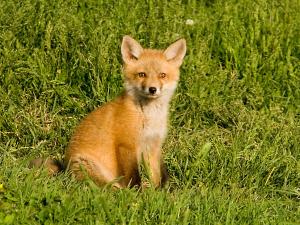Wildlife rehabilitators offer tips about baby wildlife in spring
The Delaware Council of Rehabilitators and Educators offers some important tips for residents as spring appears:
Spring is baby season for wildlife. That means people may encounter young animals.
Don’t be a kidnapper of these wild babies. Take a few minutes to check out the situation. Wild animals rarely abandon their young.
If you find a nest of rabbits, a fawn or a baby squirrel, stay at a distance and watch for activity by a parent. Another option would be to contact a licensed wildlife rehabilitator who can discuss the situation with you and help decide what should be done. If the babies are cold, bleeding or show signs of injury, then you can push them into a box with a towel or dustpan and cover the top. Call a rehabber, as immediate care is critical in many cases.
Rabbits dig shallow nests in a lawn, mulched flower bed or tall section of grass. The mother visits morning and evening to nurse the young for about three weeks. The rest of the time, the bunnies snuggle together for warmth while the mom forages for her food. She stays away to avoid attracting predators to the nest. An easy way to tell if the mom is around is to drape two pieces of yarn about 12 inches long in an X shape over the nest for 12 to 15 hours. When the mother comes to feed the babies, she will disrupt the yarn and prove she is around. If the yarn remains undisturbed, call a rehabber. The young only remain in the nest for three to four weeks, so disruption in your yard should be minimal. By the time they are as big as a deck of cards, the little bunnies will be out on their own.
Deer also leave fawns alone for much of the time, sometimes up to 10 hours, but will watch from a distance. If you find one, back away and let the mother come back and feed her baby. Only intervene if there is an obvious injury or a dead doe nearby.
All wildlife, even the cutest little bunny, can carry diseases or parasites. Never touch wildlife with your bare hands; always use a towel or broom to slide an animal into a box and secure it. This is especially true with raccoons and species that often carry rabies, such as foxes (grey and red), coyotes, skunks, bats and groundhogs. Saliva from an infected animal sneezed into your eyes or mouth or wiped on a cut on your hand can infect you also. Rabies is a fatal disease if not treated quickly. Raccoons and skunks also carry roundworms whose eggs can only be killed by fire. The worms do little damage to their host, but can cause blindness and even death in humans.
All mammal and turtle rehabbers in Delaware are volunteers who fund their own activities, and most work at full-time jobs, so give them time to respond to your call. Sussex County residents can call Bob Hughes and Margaret Colvin at 302-228-8733. To see some rescued and released wildlife, go to www.DEwildliferescue.com.




















































